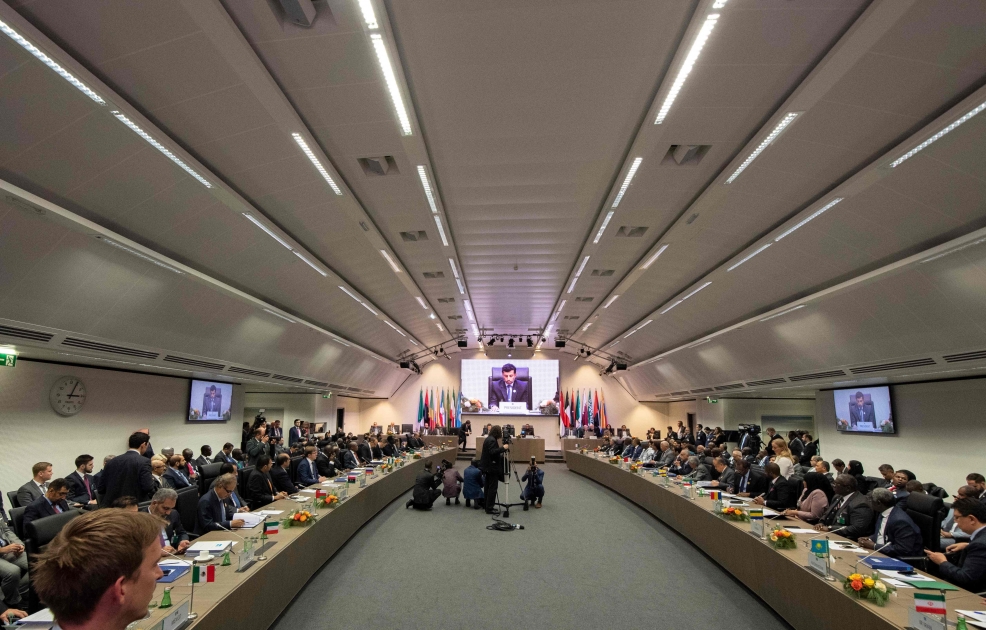
Oil prices surge on OPEC deal to cut output by 1.2m barrels
Oil prices jumped more than 4 percent on Friday as Saudi Arabia and other producers in OPEC, as well as allies like Russia agreed to reduce output to drain global fuel inventories and support the market.
The Organization of the Petroleum Exporting Countries and its Russia-led allies, referred to as “OPEC+,” agreed to slash production by a combined 1.2 million barrels per day from 2019, larger than the minimum 1 million bpd that the market had expected, despite pressure from US President Donald Trump to reduce the price of crude.
The producer club will curb output by 800,000 bpd from January while non-OPEC allies contribute an additional 400,000 bpd of cuts, Iraqi Oil Minister Thamer Ghadhban said after OPEC concluded two days of talks in Vienna.
Russian Energy Minister Alexander Novak confirmed the combined output cuts of 1.2 million bpd, saying that the market will be oversupplied through the first half of the year.
Brent crude rose $2.94 to $63.00 a barrel by 11:20 a.m. EDT. In early trade, the global benchmark fell below $60 when it looked as if oil exporters might leave production targets unchanged. The benchmark rallied to a session high of $63.73 on news of the agreement.
US crude rose $2.20 to $53.69 a barrel, after earlier reaching a session high of $54.22.
US crude was on track to end the week up 5.2 percent and Brent was 6.9 percent higher on the week so far.
A 1.2 million-bpd cut, if implemented fully, “should be enough to largely attenuate, but not eliminate, expected implied global inventory builds in the first half of next year,” Harry Tchilinguirian, global oil strategist at BNP Paribas in London, told the Reuters Global Oil Forum.
Oil prices have plunged 30 percent since October as supply has surged and global demand growth has weakened.
Prices fell almost 3 percent on Thursday after OPEC ended a meeting in Vienna with only a tentative deal to tackle weak prices. Talks with other producers were held on Friday.
But Iran gave OPEC the green light on Friday to reduce oil output after finding a compromise with rival Saudi Arabia over a possible exemption from the cuts, an OPEC source said.
Oil output from the world’s biggest producers — OPEC, Russia and the US — has increased by 3.3 million bpd since the end of 2017 to 56.38 million bpd, meeting almost 60 percent of global consumption.
The surge is mainly due to soaring US oil production, which has jumped by 2.5 million bpd since early 2016 to a record 11.7 million bpd, making the US the world’s biggest producer.
The US rig count, an indicator of future output, has risen for five straight months, The latest weekly data is due at 1 p.m. EST.
Given supply that is coming to be online, some analysts and market participants say the cut may not be enough to end oil’s rout.
“Relative to how big this looming supply tsunami, it is not nearly enough to prevent big inventory builds next year,” said Robert McNally, president of Rapidan Energy Group in Washington. “President Trump and President Putin prevented OPEC+ from cutting by more, which was certainly needed to put a sturdy floor under prices. They are putting a fuzzy floor under prices.”
Trump has asked OPEC to keep prices low. Russia had initially balked at cutting production alongside OPEC.



























